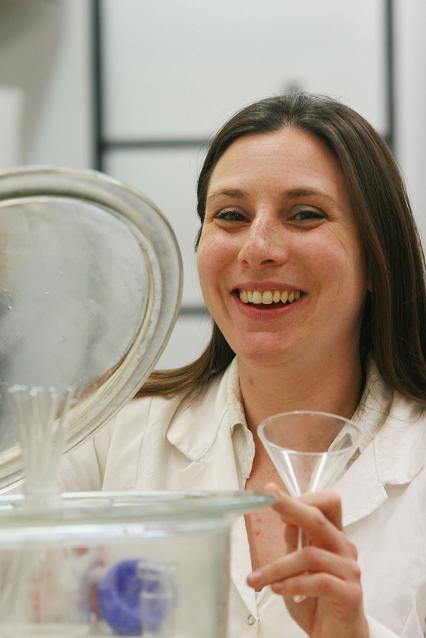Research student Neta Pesach from the School of Pharmacy at the Hebrew University of Jerusalem developed a drug to prevent epileptic seizures under the guidance of Prof. Boris Yegan and Prof. Meir Bialer. This drug is free of side effects that exist in the drugs available today

Research student Neta Pesach from the School of Pharmacy at the Hebrew University of Jerusalem developed a drug to prevent epileptic seizures under the guidance of Prof. Boris Yegan and Prof. Meir Bialer. This drug is free of side effects that exist in the drugs that are currently in use. For the development, Neta Pesach recently received the Kay Award for innovative developments within the 72nd session of the Board of Trustees of the Hebrew University.
Epilepsy is one of the most common neurological disorders: it affects approximately one percent of the world's population. Although various drugs for epilepsy have been released on the market in recent times, about 30% of patients still do not respond to drug treatment.
Also, most of the drugs available to patients have side effects, some of which can even cause death. One of the main drugs for the treatment of epilepsy and other neurological disorders is valproic acid (VPA). This drug has two side effects that can be life-threatening - liver toxicity and the creation of malformations in fetuses - and both arise from the chemical structure of the drug.
In the comprehensive research that Pesach conducted on wolfaroic acid, she was able to design and create a family of compounds derived from this acid, which do not cause the side effects. Two of the compounds, Alpha-F-TMCD and Alpha-Cl-TMCD were found to have a high potential for preventing epileptic seizures without the side effects. The Alpha-Cl-TMCD compound is currently undergoing further testing at the US National Institutes of Health.
According to Pesach, "the results indicate that the two new compounds have a high potential for the development of new drugs to treat various types of epilepsy, neuropathic pain and other diseases related to disorders of the central nervous system. The compounds guarantee a high probability of success in the treatment and a wide safety margin, and they are free from side effects of harming the fetuses."
An award ceremony for innovative developments named after Kay has been held at the Hebrew University every year since 1994. Yitzhak Kay from England, a prominent industrialist in the pharmaceutical industry, founded the practice of awarding awards to encourage university faculty and students to develop innovative methods with commercial potential that will benefit the university and society.

One response
My son is diagnosed with epilepsy
I would be happy to consult about the research